Politics
Early voting begins in NY mayoral race dominated by Trump foe Mamdani
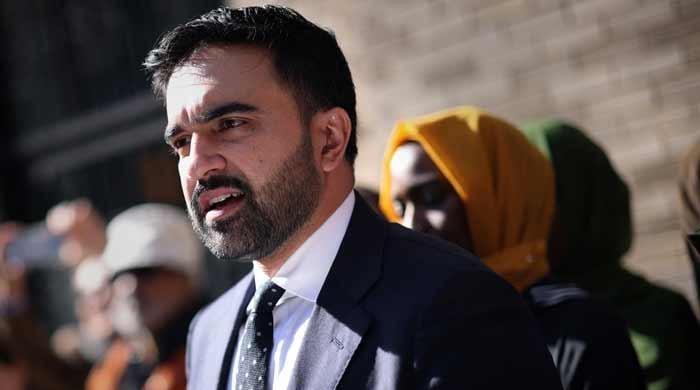
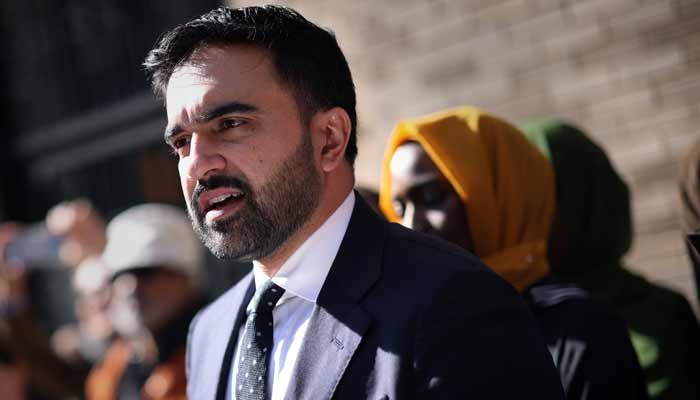
- Early voting to continue until November 2.
- Mamdani has 47% New Yorkers’ support.
- Lawmaker top Democrat endorses Mamdani.
Early voting for New York’s next mayor begins Saturday with an outsider Democratic Party candidate the favorite to upend the city’s politics and face down President Donald Trump, who has repeatedly attacked him.
The twisting race has seen state lawmaker Zohran Mamdani, a self-described socialist, surge from the political wilderness to become the frontrunner in a campaign in which the current mayor bowed out and the onetime Democratic favorite lost his own primary.
The 34-year-old Mamdani’s once unlikely campaign has been turbo-charged by eager campaigning by young New Yorkers in particular.
An emphasise on the soaring cost of living has also resonated, with the Queens-based lawmaker promising to freeze rent for two million New Yorkers in rent-stabilised properties.
In the latest twist, scandal-tainted current mayor Eric Adams backed the second-place candidate, 67-year-old former state governor Andrew Cuomo — after previously calling him a “snake and a liar.”
Early voting allows New Yorkers to cast a ballot from Saturday until November 2, with Election Day on November 4 and the winner taking office in the New Year.
Mamdani had 47% support and led Cuomo by 18 points in the latest citywide poll, conducted by Victory Insights between October 22 and 23. Republican candidate Curtis Sliwa, 71, was at 16%.
Adams, who has been mired in corruption allegations linked to his term in office, dropped out of the race on September 28 but did not initially endorse a rival.
“You can’t freeze rent, but you are lying and telling people you could — we’re fighting against a snake oil salesman,” Adams said Thursday with Cuomo at his side.
“Gentrifiers have raised the rent in the city… and (Mamdani’s) the king of the gentrifiers.”
It is unclear what impact Adams’s endorsement will have on the race.
“It is possible, but extremely unlikely, Cuomo can catch Mamdani,” said Lincoln Mitchell, a political science professor at Columbia University, saying the former governor’s “tough guy persona” dates from another era.
‘Affordability crisis’
The race has been dominated by the issue of cost of living, as well as by how each candidate would handle Trump, who has threatened to withhold federal funds from the city where he made his name as a property developer and reality TV star.
Trump has branded Mamdani, who wants to make bus travel and childcare in the city of 8.5 million people free, a “communist.”
“I was always very generous with New York, even when you had opposition there,” Trump said this month.
“I wouldn’t be generous to a communist guy that’s going to take the money and throw it out the window.”
Mamdani has said he would cooperate with Trump if it brought down the cost of living in the city, while Sliwa has said he would seek to “negotiate” with the president and Cuomo has said he would “confront” the commander-in-chief.
“I’ve lived in New York for 10 years almost. I’ve always been… not necessarily always struggling, but trying to hustle and get things together,” Mamdani supporter and tenant organiser Lex Rountree, 27, told AFP.
“It feels strange to kind of think about what it would look like to have some of that ease” under Mamdani, Rountree added.
Mamdani’s campaign received a lift on Friday when Hakeem Jeffries, a New York lawmaker and the top Democrat in the US House of Representatives, endorsed him.
“Mamdani has relentlessly focused on addressing the affordability crisis and explicitly committed to being a mayor for all New Yorkers, including those who do not support his candidacy,” the leading Democrat said.
Mamdani will bring star firepower to the table Sunday when he appears alongside leftist Senator Bernie Sanders and lawmaker Alexandria Ocasio Cortez at a “get out the vote” rally in Forest Hills Stadium in Queens.
Politics
Russia pledges ‘full support’ for Venezuela against US ‘hostilities’
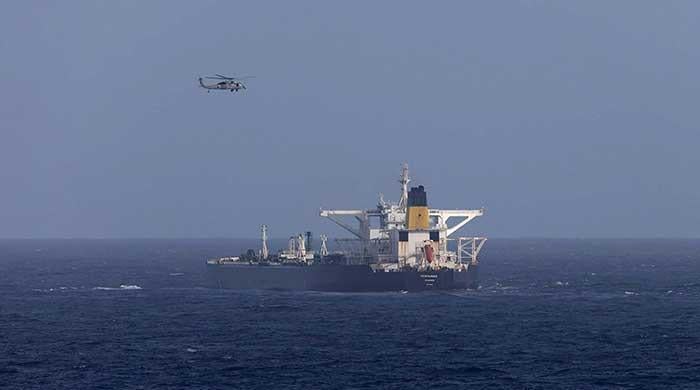
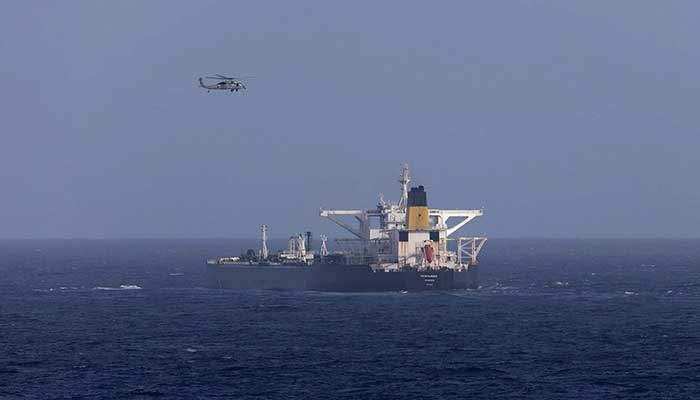
- Moscow, Caracas condemn US actions as int’l law violations.
- UNSC to discuss rising US-Venezuela tensions on Tuesday.
- Washington accuses Venezuela of funding criminal activities.
Russia on Monday expressed “full support” for Venezuela as the South American country confronts a blockade of sanctioned oil tankers by US forces deployed in the Caribbean.
The pledge from Moscow, itself embroiled in the war in Ukraine, came on the eve of a UN Security Council (UNSC) meeting on Tuesday to discuss the mounting crisis between Caracas and Washington.
In a phone call, the foreign ministers of the allied nations blasted the US actions, which have included strikes on alleged drug-trafficking boats and more recently, the seizure of two oil tankers.
A third ship was being pursued, a US official told AFP on Sunday.
“The ministers expressed their deep concern over the escalation of Washington’s actions in the Caribbean Sea, which could have serious consequences for the region and threaten international shipping,” the Russian foreign ministry said of the call between Sergei Lavrov and Venezuelan counterpart Yvan Gil.
“The Russian side reaffirmed its full support for and solidarity with the Venezuelan leadership and people in the current context,” it added in a statement.
US forces have since September launched strikes on boats that Washington claims, without providing evidence, were trafficking drugs in the Caribbean and eastern Pacific Ocean.
More than 100 people have been killed — some of them fishermen, according to their families and governments.
US President Donald Trump on December 16 also announced a blockade of “sanctioned oil vessels” sailing to and from Venezuela.
Trump claims Caracas under President Nicolas Maduro is using oil money to finance “drug terrorism, human trafficking, murder and kidnapping.”
He has also accused Venezuela of taking “all of our oil” — in an apparent reference to the country’s nationalisation of the petroleum sector, and said: “we want it back.”
Caracas, in turn, fears Washington is seeking regime change, and has accused Washington of “international piracy.”
Moscow’s statement said Lavrov and Gil agreed in their call to “coordinate their actions on the international stage, particularly at the UN, in order to ensure respect for state sovereignty and non-interference in internal affairs.”
Russia and China, another Venezuela ally, backed Caracas’s request for a UNSC meeting to discuss what it called “the ongoing US aggression.”
Russia’s ‘hands full’
On Telegram, Venezuela’s Gil said he and Lavrov had discussed “the aggressions and flagrant violations of international law being perpetrated in the Caribbean: attacks on vessels, extrajudicial executions, and illicit acts of piracy carried out by the United States government.”
Gil said Lavrov had affirmed Moscow’s “full support in the face of hostilities against our country.”
Last week, US Secretary of State Marco Rubio brushed aside Moscow’s stated support for Caracas.
Washington, he said, was “not concerned about an escalation with Russia with regards to Venezuela” as “they have their hands full in Ukraine.”
US-Russia relations have soured in recent weeks as Trump has voiced frustration with Moscow over the lack of a resolution to the Ukraine war.
Gil on Monday also read a letter on state TV, signed by Maduro and addressed to UN member nations, warning the US blockade “will affect the supply of oil and energy” globally.
Politics
Trump pulls 30 envoys in ‘America First’ push, critics say it weakens US abroad
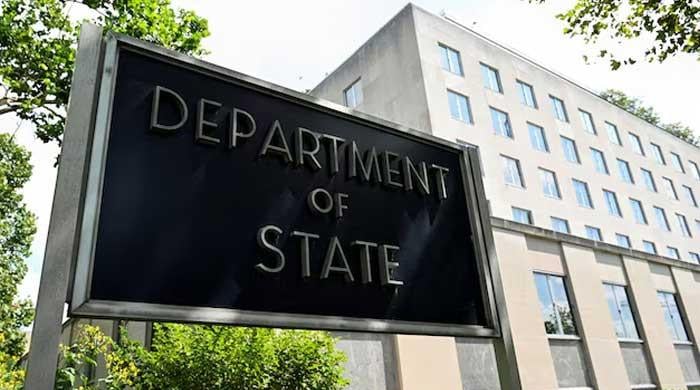
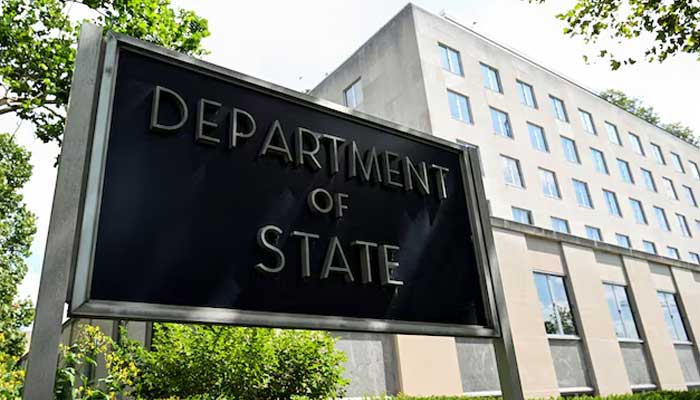
- State Department says removal of ambassadors is standard.
- Foreign service association calls it “institutional sabotage”.
- Lawmaker says move damages US leadership.
The Trump administration is recalling nearly 30 ambassadors and other senior career diplomats to ensure embassies reflect its “America First” priorities, a move critics said would weaken US credibility abroad.
The State Department declined to provide a list of the diplomats being recalled. A senior department official said on Monday the move was “a standard process in any administration”, but critics said that was not so.
“An ambassador is a personal representative of the president, and it is the president’s right to ensure that he has individuals in these countries who advance the America First agenda,” said the official, who spoke on condition of anonymity.
Nearly 30 senior diplomats were among those ordered back to Washington, people familiar with the matter said.
They were posted to smaller countries where the top US representative has traditionally been from the Foreign Service, which is made up of career officials not aligned with a political party, the people said.
The recalled diplomats were encouraged to find new roles in the State Department, a second US official said.
The American Foreign Service Association, representing foreign service officers, said it was working to confirm which members were recalled after some reported being notified by phone with no explanation — a process its spokesperson called “highly irregular.”
“Abrupt, unexplained recalls reflect the same pattern of institutional sabotage and politicisation our survey data shows is already harming morale, effectiveness, and US credibility abroad,” spokesperson Nikki Gamer said in an email.
The State Department declined to respond to Gamer’s comments.
Trump has sought to place loyalists in senior roles since starting his second term after encountering resistance during his first term, advancing his foreign policy priorities within the US national security establishment.
Jeanne Shaheen, ranking Democrat on the US Senate Committee on Foreign Relations, assailed the Republican administration’s removal of the diplomats while about 80 ambassadorial posts remain vacant.
“President Trump is giving away US leadership to China and Russia by removing qualified career Ambassadors who serve faithfully no matter who’s in power,” Shaheen posted on X. “This makes America less safe, less strong and less prosperous.”
Politics
Bangladesh suspends consular, visa services in Delhi as ties worsen
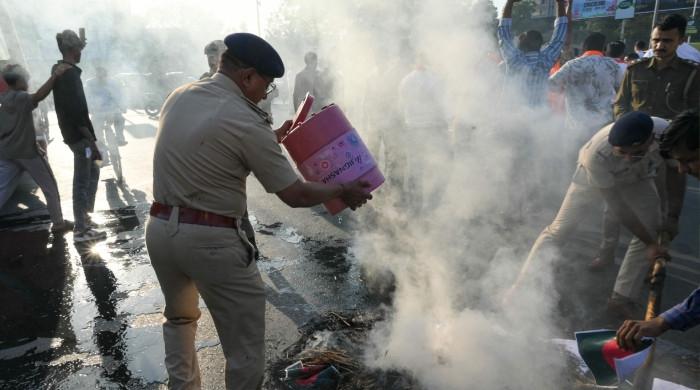
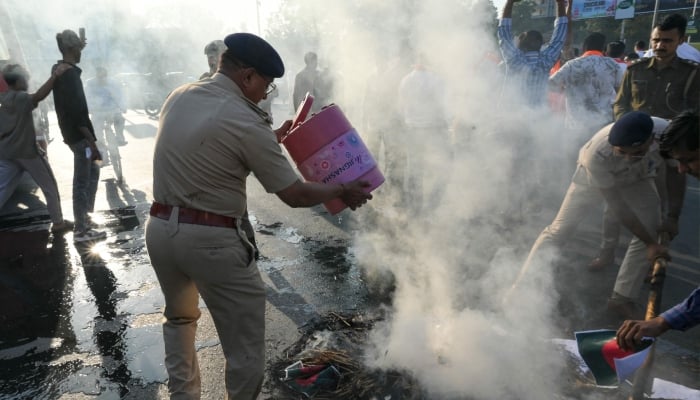
- Agartala assistant mission services also halted.
- Suspension remains until further official notice.
- Dhaka says closures due to “unavoidable circumstances”.
Bangladesh has suspended consular services and visa operations at its High Commission in India’s New Delhi, following a protest which Dhaka described as “unjustifiable” and “highly regrettable”.
In addition to suspending services at its High Commission in New Delhi, Bangladesh has also stopped consular services at the Assistant High Commission in Agartala, according to Bangladesh’s Dhaka Tribune.
The services will remain suspended until further notice by the Bangladeshi officials, the publication reported.
India’s ANI also reported a formal notice posted at the High Commission in Delhi regarding the closure.
“Due to unavoidable circumstances, all consular and visa services at the Bangladesh High Commission in New Delhi have been temporarily suspended until further notice,” the publication quoted the notice as saying.
The closure of the consular services comes following a protest held outside the Bangladesh HC under the banner of “Akhand Hindu Rashtra Sena”, which New Delhi said was against the killing of Dipu Chandra Das and for the protection of minorities in Bangladesh.
Das, a garment factory worker, was beaten to death on December 18 in Bangladesh’s Mymensingh, on allegations of blasphemy, after which his body was also set ablaze, reported Prothom Alo.
Bangladesh’s Ministry of Foreign Affairs rejected India’s explanation, saying that the protest cannot be labelled “misleading propaganda”.
“The miscreants were allowed to carry out their activities right outside the perimeters of the HC, creating panic among the personnel inside the complex,” said Bangladesh’s foreign office.
Relations between the two nations worsened after the killing of prominent Bangladeshi student leader Sharif Osman Hadi.
Hadi, 32, was shot in the head by masked assailants in Dhaka while launching his campaign for the elections. He was a spokesperson for the Inquilab Mancha, or Platform for Revolution, and participated in the protests that overthrew Hasina.
Following his death, mobs attacked the Indian Assistant High Commission in Chittagong, as well as setting fire to multiple newspapers’ outlets in Dhaka, accusing them of favouring India, where Bangladesh’s ousted PM Sheikh Hasina has taken refuge since fleeing Dhaka in the wake of the 2024 uprising.
-

 Business1 week ago
Business1 week agoStudying Abroad Is Costly, But Not Impossible: Experts On Smarter Financial Planning
-
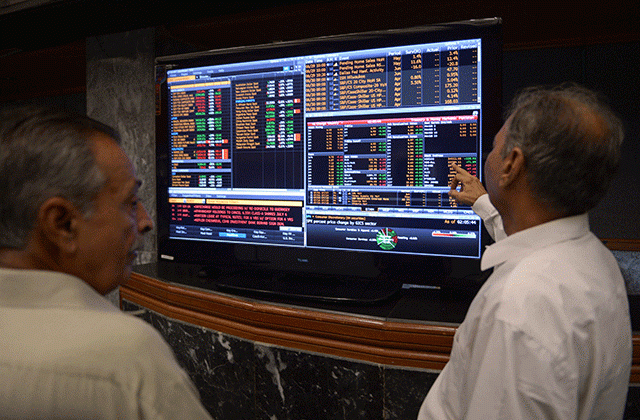
 Business1 week ago
Business1 week agoKSE-100 index gains 876 points amid cut in policy rate | The Express Tribune
-

 Fashion5 days ago
Fashion5 days agoIndonesia’s thrift surge fuels waste and textile industry woes
-

 Business5 days ago
Business5 days agoBP names new boss as current CEO leaves after less than two years
-

 Sports1 week ago
Sports1 week agoJets defensive lineman rips NFL officials after ejection vs Jaguars
-
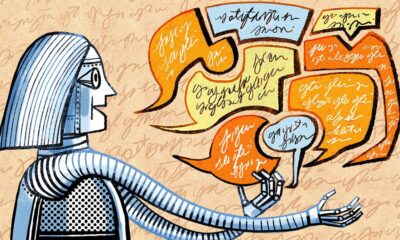
 Tech1 week ago
Tech1 week agoFor the First Time, AI Analyzes Language as Well as a Human Expert
-

 Tech5 days ago
Tech5 days agoT-Mobile Business Internet and Phone Deals
-

 Entertainment1 week ago
Entertainment1 week agoPrince Harry, Meghan Markle’s 2025 Christmas card: A shift in strategy





